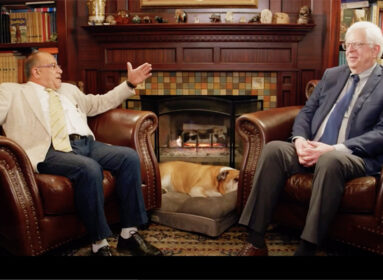By Howard Blas
 For Jerusalem resident Moshe Rosenbaum it is hard to believe that his Hungarian-born Holocaust survivor father, Pinchas, would have been 90 this year. He died 33 years ago – and, like many survivors, he did not share all of the details of his Holocaust experience. Fortunately, however, he shared enough information for his family to know that he was a true hero who risked his life to save hundreds of fellow Jews. Now the world will know too.
For Jerusalem resident Moshe Rosenbaum it is hard to believe that his Hungarian-born Holocaust survivor father, Pinchas, would have been 90 this year. He died 33 years ago – and, like many survivors, he did not share all of the details of his Holocaust experience. Fortunately, however, he shared enough information for his family to know that he was a true hero who risked his life to save hundreds of fellow Jews. Now the world will know too.
“Although our late father did not volunteer much information and would only respond to our questions, we learned as children about our father’s hatzala [saving] work,” Moshe Rosenbaum said recently in an interview with the Ledger. “Our late mother spoke to us about it and we also met many friends from those days, including people who were saved by our late father.”
Pinchas Rosenbaum was born in Hungary in 1923 and received his rabbinic ordination at the age of 18. When the Nazis occupied Hungary in 1944, the 21-year-old was sent to a labor camp, never again seeing his parents and siblings who were sent to their deaths at Auschwitz.
Pinchas escaped the labor camp and devised a scheme to save others by wearing the stolen uniforms of the Hungarian Arrow Cross Party, a nationalist socialist party responsible for deporting and murdering tens of thousands of Jews. Pinchas would learn which Jews were to be deported; seek them out, seize them, and pretend to arrest them. Instead of sending them off to their deaths, though, he brought them to a place known as the Glass House, the Swiss refuge in Budapest which was overseen by a Swiss diplomat named Carl Lutz. Lutz was the Swiss vice-consul in Budapest from 1942 until the end of World War II. He is credited with saving more than 62,000 Jews.
Fast forward to the 21st century. Film director Mark Schmidt came across the Rosenbaum story while viewing a History Channel documentary on World War II heroes. What he learned prompted him to make a film about a fictional character named Elek Cohen (played by Jonas Armstrong), based on Pinchas Rosenbaum. Set in Hungary during the final months of World War ll, the young Elek sets out to find his displaced family by stealing a Nazi uniform to pose as an officer. He undertakes extraordinary measures to reroute his family and other Jews to safety by disrupting the activities of the German occupiers.
When Moshe Rosenbaum read about the movie, he contacted the producers. “They invited my wife and I to see that first version. I really had nothing to do with the making of the movie, which in a way is better. I much prefer a fictional story inspired by my father than a distorted biography.”
Still, says Rosenbaum, “I was very moved to see that my late father’s deeds inspired Mark Schmidt and [producer] Randy Williams, who are both not Jewish, to such an extent they decided to make their first movie based on their vision of my father’s story. It was very intense to watch this film and feeling so connected to the main character. Elek does display great courage and total devotion to help and do whatever is necessary to save other Jews and that was my father.”
“Walking with the Enemy,” starring Ben Kingsley, is currently being shown in select theaters in New York, New Jersey, and other parts of the country.
The Ledger spoke recently with director Mark Schmidt about his new film.
JL: How did you come across this story in the first place?
MS: I saw a documentary on World War II heroes on the History Channel – and one was Pinchas Rosenbaum. I did research; I read books. I went to visit Hungary and went to such towns as Budapest and Krivoda, his hometown, where I conducted interviews.
The film was shot in Eastern Europe. Some in Budapest, also Bucharest and Southern California. We chose the locations to duplicate what it looked like in the 1940s.
JL: Why did you feel this was an important film to make?
MS: Pinchas Rosenbaum was a true hero, he had no army or government behind him. He could have hid out, but he put his life on the line to save innocents. It shows the true hero spirit of one person. That he risked his life; he did the best he could; he adapted to his environment. It is about good versus evil; it makes you think of what happened there and that we in the United States are so lucky.
JL: Do you have any personal connection to the Holocaust?
MS: I have no personal connections. I just wish we would think about how our leadership sometimes goes down the wrong road and does things which can be evil and that the right leadership can offer practical solutions.
JL: You are donating money from the film to the Wounded Warriors project – what’s the connection?
MS: We felt that people who get injured protecting democracy deserve to be honored. We’re doing that by donating to Wounded Warriors.







 Southern New England Jewish Ledger
Southern New England Jewish Ledger














